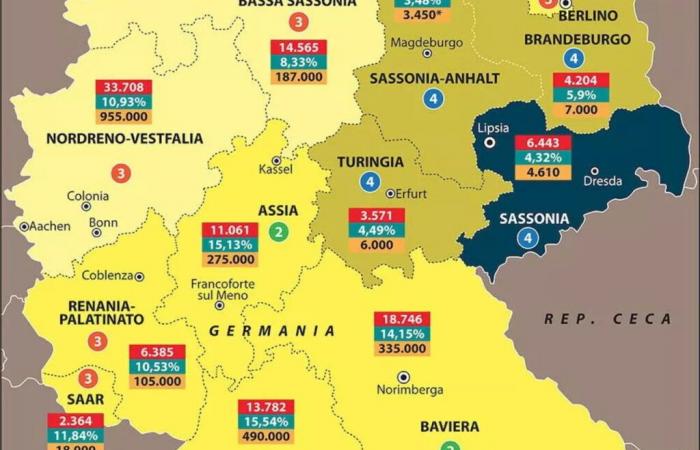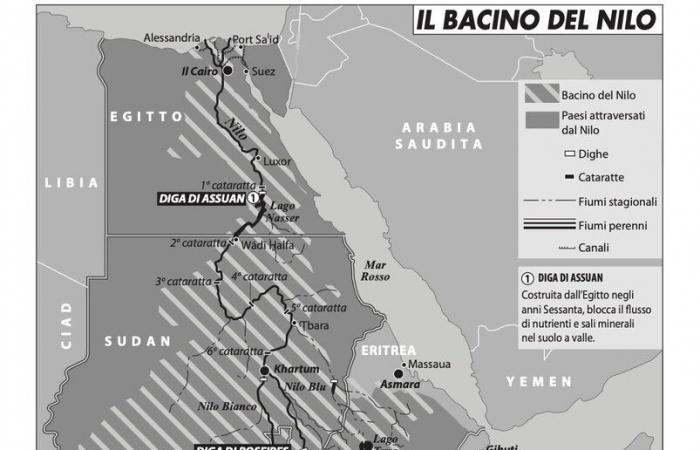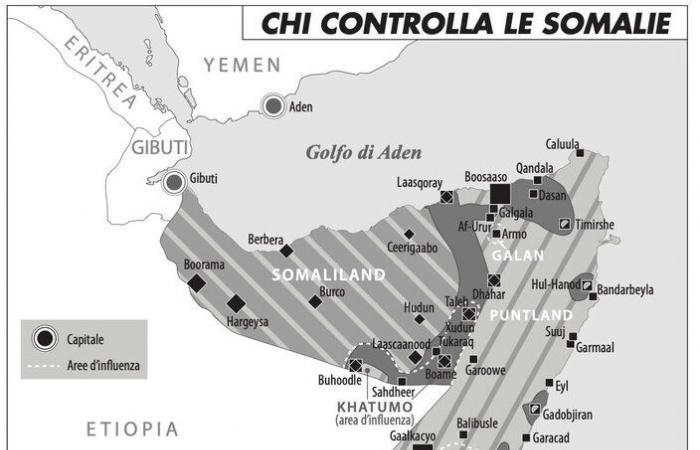CRISIS IN GERMANY
by Giacomo Mariotto
On Monday the Bundestag removed its confidence in the government of the Federal Republic. In many ways, no surprise. The vote formalized the implosion ofTraffic light coalitionthe “traffic light coalition”, which took place on the evening of November 6th after a clash between social democrats and liberals over the debt brake. It had only happened three other times in the entire history of modern Germany, to Willy Brandt, Helmut Kohl and Gerhard Schröder.
It is the last act of Angela Merkel's Germany, of which the executive led by Scholz represented a coherent appendage despite the party differences, both because it emerged exactly three months before the Russian invasion of Ukraine and for the lack of charisma and incisiveness of the chancellor.
Parliamentary elections will be held on February 24. And whoever manages to come out on top – based on what the polls suggest, it will be Friedrich Merz's Christian Democrats – will find themselves leading a Germany in deep crisis.
Just over three years after the last election campaign, the world has changed. US security guarantees, especially after the recent re-election of Donald Trump, leave many doubts. The energy link with Russia has been severed. Trade relations with China are struggling. And Europe is a more chaotic continent.
More importantly, the Germans have changed. The economy is faltering. And the next elections could confirm the definitive rise on the federal stage of the main extremist parties, especially the AfD and the BSW. It will definitely be a different Germany. More difficult to govern.
For further information: The austere boomerang
“Germany without quality”, issue 6/24 of Limes
US SHUTDOWN
by Michelangelo Genone
The United States government risks closing. If the Democratic and Republican representatives in the House do not reach an agreement by midnight today, Friday 20 December, funding for most federal activities will be blocked. More than two million employees governments they risk not receiving your salary for Christmas. Workers considered essential, from the military toairport staff, they would continue to work unpaid, while non-essential services, such as national parks and museums, would be directly closed. The so-called shutdown had to be avoided by a bipartisan bill that would be voted on December 19 in the House and then pass to the Senate, until Elon Musk he didn't start before time to exercise his duties as “Doge”, or secretary ofthe future dhis department dell'Efficienza governative entrusted to him by the president-elect. With a flurry of almost one hundred tweets about X, in just a few hours the richest man in the world ha sent up neither proposedacarrying forward a own flash disinformation campaign regard contents not present in the agreement: by the 40% increase in MPs' salaries (in reality Of just 3.8%)to funds for biochemical weapons laboratories (facilities that deal with research and infectious diseases). Il document of over 1,500 pages which among other things contains more than 100 billion Of dollars of funds for natural disasters10 billion agricultural aid e health reforms. In the end, Musk he threatened: “Any member of Congress who supports this proposal deserves to be ousted in the next election in two years”. Republicans quickly abandoned the billwhich didn't even make it to the vote. The speaker of the Chamber – the Republican Mike Johnson – he found himself isolated, con his leadership questioned by fringes of his own party who already propose Musk as his possible successor, a possibility not far off given that elections for the position are in January. Donald Trump was quick to help scuttle the proposal by asking to increase the debt ceiling for government spending and to remove those that the owner of Tesla he defined porkthat is to say expenses that are “unnecessary or linked to Democratic lobbying interests”. Translated, obtain more room to maneuver and free hand for the futuresome dem Already they fear tax cuts for the ultra-rich, without having to get your hands dirty once at the White House. Nif it were to pass the law all it will do is let it fall back the responsibilities of shutdown on the last one who doesn't give up and does not accept compromise, Meaning what the Democrats. Whichalong with some more conservative Republicans, they refused the latest proposal presented byllo speaker, than on the line dictated dal tycoon added roof suspension ofl debt until 2027. Leach other highlights the internal fault lines of the Republican Party: between who, while supporting Trump, does not accept excessive spending or risky maneuvers on the debt e those who follow the influence of external figures such as Musk. Meanwhile iThe fate of the budget is being played out in a few hours with one eye on January 20thwhen The Donald will enter the White House.
For further information: The Democrats' too many Americas
On newsstands and bookstores from December 31st

Türkiye – HORN OF AFRICA
by Lorenzo Noto
On Wednesday 11 December, Recep Tayyip Erdoğan announced the reaching of an agreement between Ethiopia and Somalia for the resolution of the tensions between the two countries that erupted following the memorandum of understanding between Addis Ababa and Somaliland signed last January. This provided access for Ethiopia to the strategic port of Berbera, a competitor to Djibouti on the Gulf of Aden, as well as the concession of a ten kilometer free zone with the associated construction of a military base for the Ethiopian Navy (under construction renovation after being dismantled in 1996). In exchange, Addis Ababa would recognize the independence of Somaliland (proclaimed in 1991). A controversial point on which the Ethiopian government has always remained vague but which had nevertheless sunk relations with Somalia to their lowest levels after the historic peace of 2018, risking military escalation. Accusations and threats followed for months, until the beginning of December when the government of Somalia accused Ethiopia of supplying weapons and troops to Juba, another Somali region that declared itself autonomous in 1998 and at odds with the federal government of Mogadishu .
Above all and worse, the development of tensions risked triggering yet another collision course between Egypt and Ethiopia, the axis on which the entire stability of the Horn of Africa rests. Beyond the decades-old dispute over Nile resources (the Gerd dam), the competition between the two East African heavyweights revolves around the age-old question of granting Ethiopia access to the sea. Absent since Eritrea's independence in 1993, the return of Addis Ababa to the sea would act in Egyptian fears as a power multiplier of the former Abyssinian empire, enhancing its role in the Great Maritime Game of the Red Sea. Principle of a profound restructuring of the regional geopolitical order, to the detriment of Cairo's already languishing influence.
After two round following unsuccessful Somali-Ethiopian talks, in August Somali president Hassan Sheikh Mohamud signed a cooperation agreement with Egypt for the sending of ten thousand Egyptian soldiers to Somalia. The case of the port of Berbera therefore risked triggering an earthquake that would have shattered the precarious balance around the Bāb al-Mandab Strait, an area already tormented by ḥūṯī attacks, Yemeni civil war and Somali piracy.
With the agreement of 11 December, Turkey has therefore struck a billiard shot…
Continue reading: Turkey dampens tensions in the Horn of Africa, for now
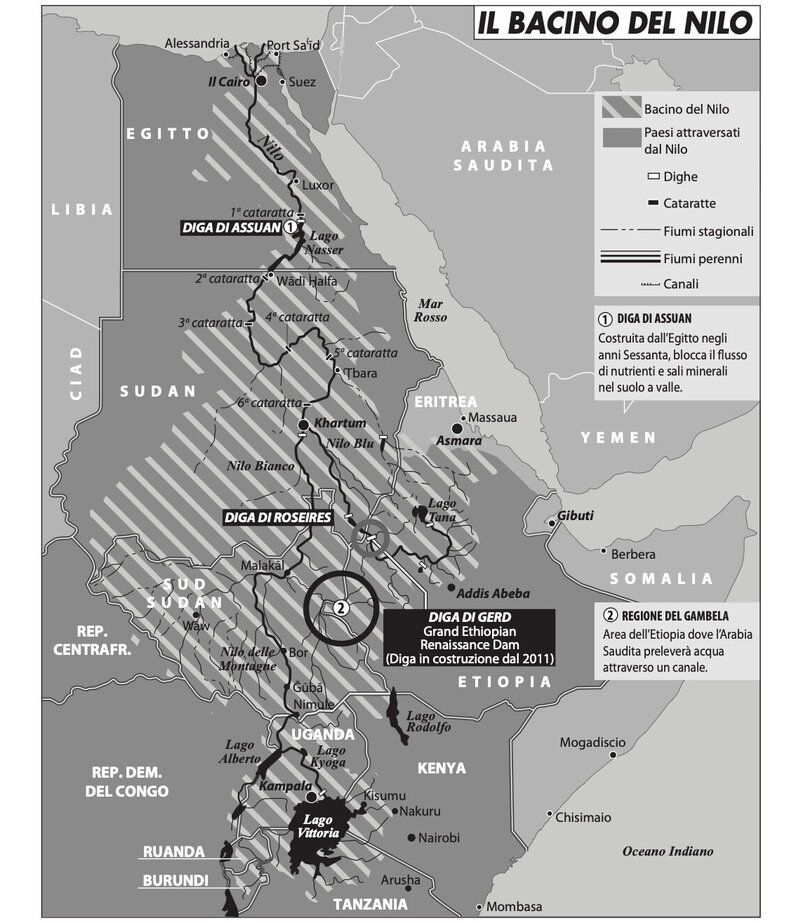

CHANGED
by Luciano Pollichieni
While the governments of Somalia and Ethiopia met in Ankara to discuss tensions over the Gulf of Aden, Mogadishu faced new internal fractures, this time resulting in armed clashes. Relations between the federal government of Mogadishu and the regional government of Juba have reached a new low. The tensions, which began with the regional elections in the federal state of Juba, culminated in the disputed re-election of governor Mohamed Islam “Madobe”, the dominant figure in the region and openly opposed by the federal government. The crisis further degenerated with the issuing of mutual arrest warrants: on the one hand the federal government issued a warrant against Madobe, on the other the Juba government responded with a warrant against Somali president Hassan Sheikh Mohamoud. The inability to find a political solution has brought the armed confrontation back to the center of the management of tensions between the central power and the regional authorities. In recent weeks, Mogadishu has sent hundreds of soldiers to the Kamboni area, near the southern border of the country . It is precisely in this area that firefights occurred between the federal and regional armed forces, with both sides accusing each other of having triggered the hostilities. According to local sources, the clashes caused around 600 victims, with federal troops suffering heavy losses. Several central government soldiers reportedly retreated across the border into Kenya, handing themselves over to the Armed Forces in Nairobi. The battle of Ras Kamboni brings the profound fragilities of the process back to the center of attention State building in Somalia. Although President Hassan Sheikh Mohamoud has benefited from substantial diplomatic and media support from the European Union and the United States, this has not proved sufficient to heal the country's internal divisions. The growing tensions with Juba now risk further compromising the offensive against Al-Shabaab in southern Somalia, transforming it into an exhausting war of attrition. .
For further information: Who benefits from divided Somalia?
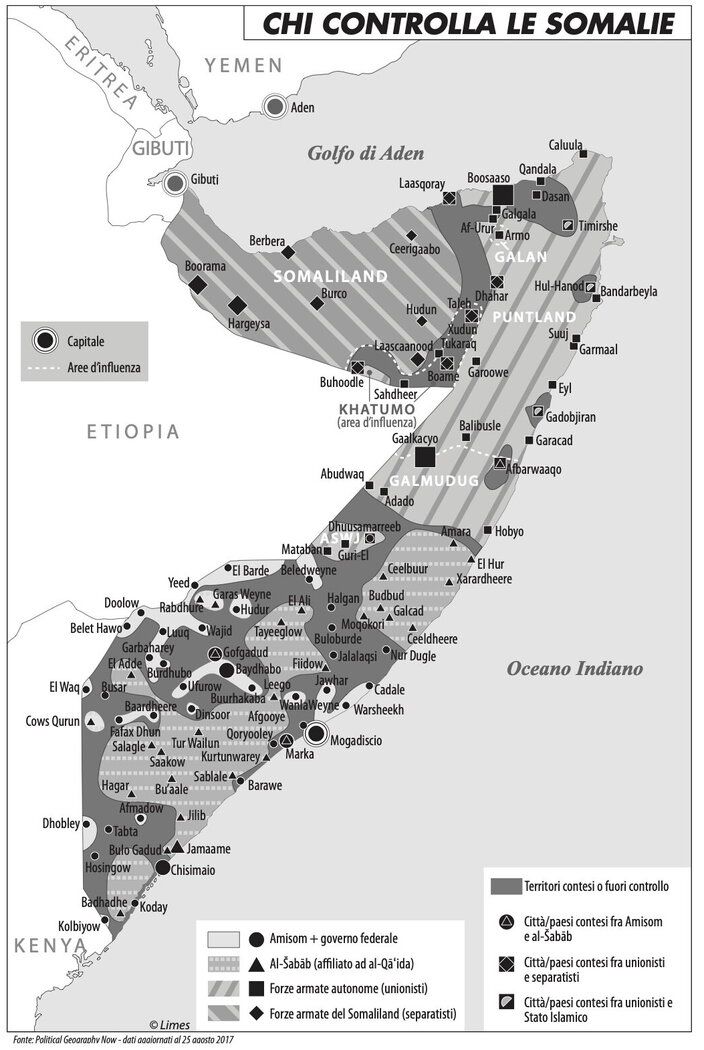

The daily column The world today takes a break. He will return on Tuesday 7 January. Happy Holidays!

